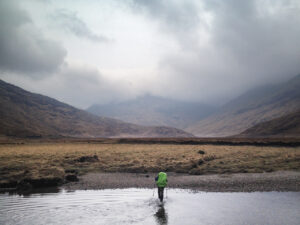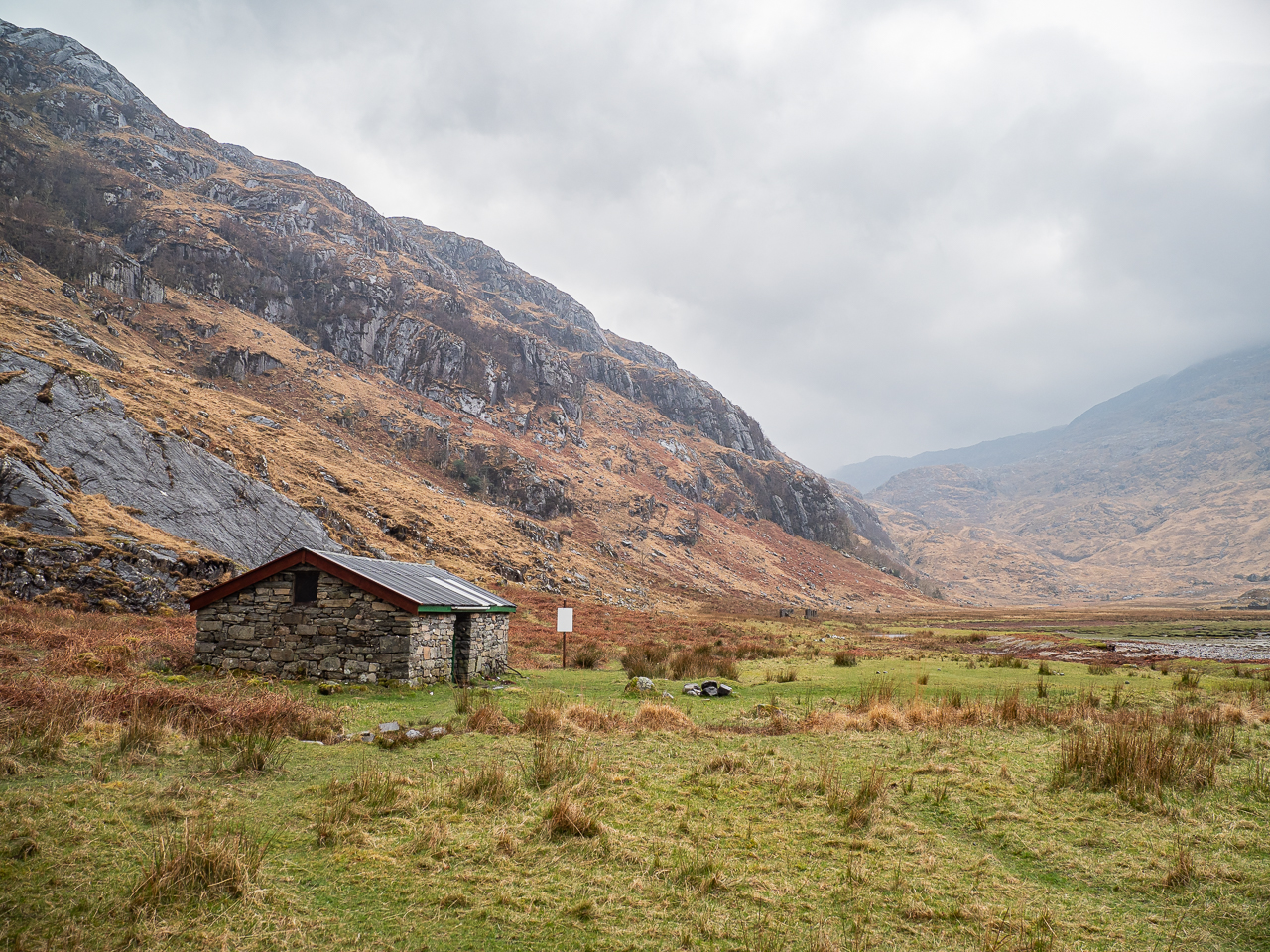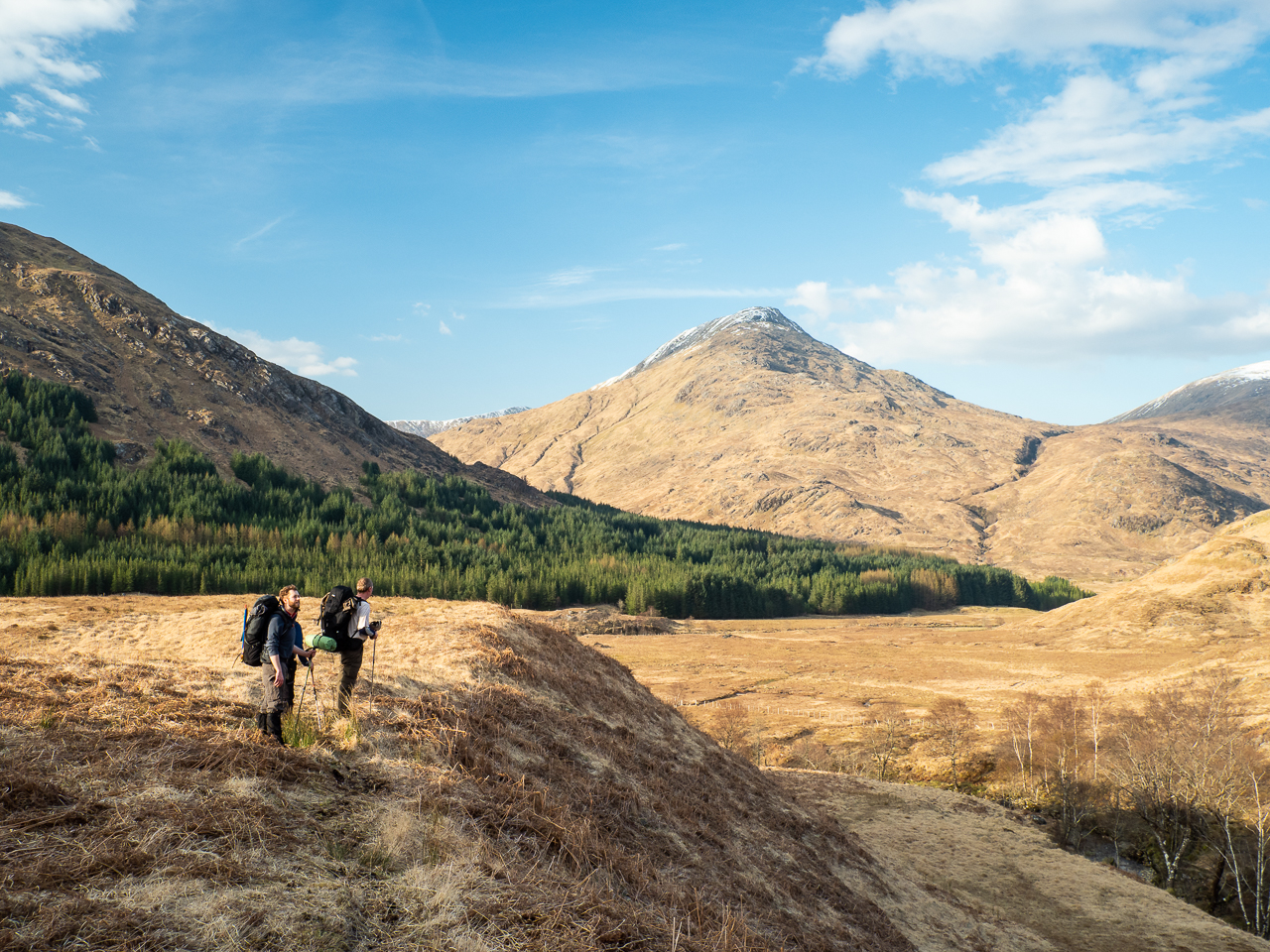19 Mar Coronavirus and hiking the Cape Wrath Trail
Coronavirus and hiking make for a challenging combination. Until lately the virus was something at the back of my mind as I planned the Cape Wrath Trail, but lately it has become more decisive. Even so, while I was preparing to tackle the Trail – again – my eye was on other things: principally, on finding ways to interpret my feelings about this enormous and faintly ridiculous challenge. After last year’s accident I’d accommodated my anxieties and made every possible preparation to settle them, while trying to ease the way to Cape Wrath’s forbidding cliffs. My blister plasters were packed. I’d scheduled rest days. I’d packed my supply parcels. And I’d rediscovered my desire – my need – for wilderness. But I needed a little more: an outside view on what calls me to leave warmth and security for unpredictable weather and exhaustion.
So, lately I’ve been doing a lot of reading on travel and landscapes. Many of my choices have been guided by Dan Richards’ excellent Outpost, an extended meditation on wild places and remote shelters. Richards visits outposts ranging from Iceland’s mountain huts to Scottish bothies, and the Desolation Peak lookout shelter that housed Jack Kerouac for two months in 1956. It’s as much an exploration of literature and human relationships as it is of Richards’ own reactions to isolation. Do pick up a copy.
In Outpost I found a thought from Kerouac that called to me from across the decades – from his essay ‘Alone on a Mountaintop’:
No man should go through life without once experiencing healthy, even bored solitude in the wilderness, finding himself depending solely on himself and thereby learning his true and hidden strength.
How better to capture the spectacular and intimidating nature of the Cape Wrath Trail – those lonely and tortured mountain landscapes and temptingly isolated bothies? Richards nails the bothy experience too:
I think the joys of bothying might be in part due to a … willingness to forgo the controls of the modern age in order to reconnect with older, deeper truths and needs.
Without our phones we become better connected.
There’s so much here that reflects my own feelings: the joy of dropping in to Corryhully or A’ Chuil or Sourlies or Barisdale – “the pleasure of seeing one’s haven appear out of the landscape”, in Richards’ words. It made the Cape Wrath Trail seem all the more appealing; I felt more confident than ever that this would be the attempt that took me all the way to Cape Wrath’s storm-blown lighthouse.
As my confidence grew, so did the scale of the coronavirus crisis. I could no longer afford to look at my plans without taking account of this fast-changing threat. Coronavirus and hiking impose different challenges, but they have to be considered together.
So, like many long-distance hikers – and my heart breaks for those who’ve had to cancel their TGO Challenge, Appalachian Trail or Pacific Crest Trail plans – I have had to wrestle with my trek’s viability. While the epidemic was picking up pace, I initially looked at the Cape Wrath Trail through a reasonably optimistic mindset: it was no longer just a challenge, but a chance to self-isolate on the go. What better way to learn my “true and hidden strength” and connect with nature, than to get away from the crisis and look to the hills for my emotional and physical needs?
The reality is quite different. In truth, there is no perfect self-isolation. I have been bouncing off the walls at home for ten days in an effort to avoid exposure to the virus, just to preserve my fitness for the trail. But I have to deliver supply parcels to the Post Office, and will have to travel across central London to reach Euston for my journey north. I don’t see how I can do any of that without the risk – be it ever so small – of contracting the virus, and of then importing it to remote parts of Scotland, where healthcare is a challenge even without the arrival of the pandemic.
Even assuming I managed to keep myself completely disease free, I can’t simply ignore other people. Forgive me if you’re bored of my limitless embarrassment over last year’s accident – but it’s instructive. I was lucky to avoid the need for a mountain rescue callout after hurting my knee. What, I have to ask myself, will happen if I have an accident again?
Well, I can limit the risk by plotting lower routes – and I have. I can make sure I’m equipped with winter kit in case the conditions turn severe – and I have. I have taken plenty of other steps, too, to reduce the risk of an accident, but there is simply no way to reduce the risk to zero. So I have to confront my moral responsibility to Scottish Mountain Rescue.
Ordinarily, I would think the risk had been managed to an acceptably low level. But now? It’s not so clear. I might still need a callout, and then I’d be reliant upon volunteers who are facing unprecedented challenges at home – from employment problems, childcare needs and the general worry that goes with a crisis. I’ll put this as bluntly as possible: there is no acceptable reason for hikers to risk a callout right now.
Even on Desolation Peak, Kerouac couldn’t really depend entirely on himself; the “city boy” still needed bailing out with fresh supplies and help from hardier souls. And I can’t depend entirely on myself either. For this reason, more than any other, I am postponing my hike.
If I’d found myself forced to abandon the Trail after setting off I’d have had to carry the weight of my disappointment forever – but right now, I don’t feel disappointed at all. This is the right time to make this difficult call: I have the kit, the rations, the plans and the determination to complete my attempt. I just have to wait just a little longer to set off.
The mountains aren’t going anywhere – and I look forward to seeing those bothies “appear out of the landscape” at a later date. They’re still waiting for me.





Debbie Parker
Posted at 16:51h, 19 MarchNicely written.
Might see you on the trail when it all gets a bit more like normal
Andy Wasley
Posted at 17:03h, 19 MarchThanks Debbie – that’s something to look forward to 🙂